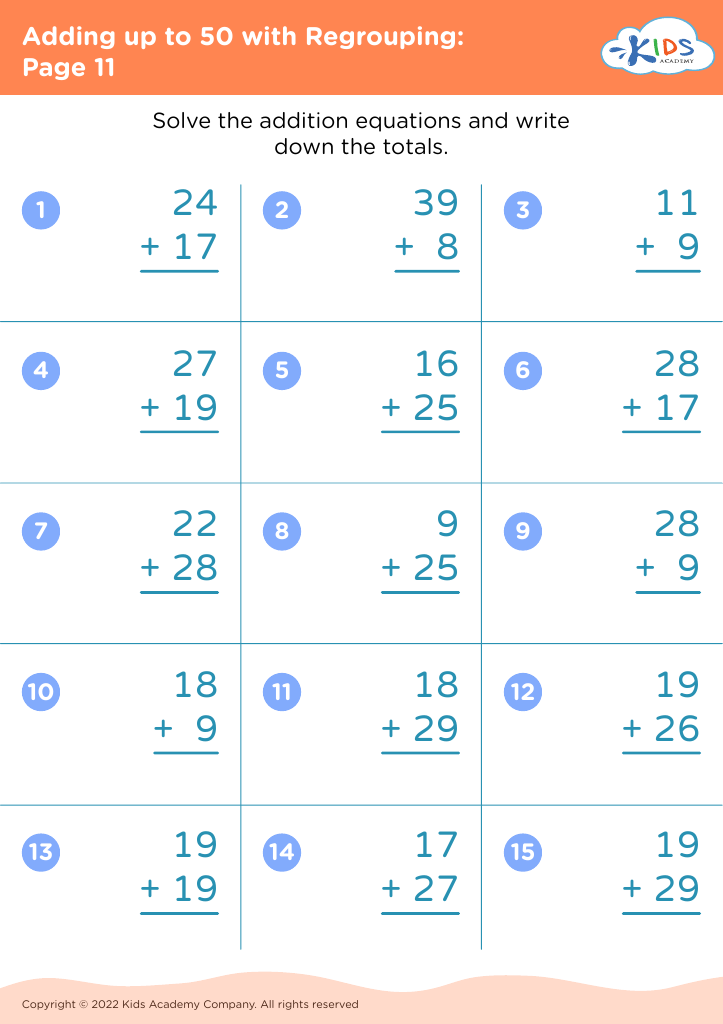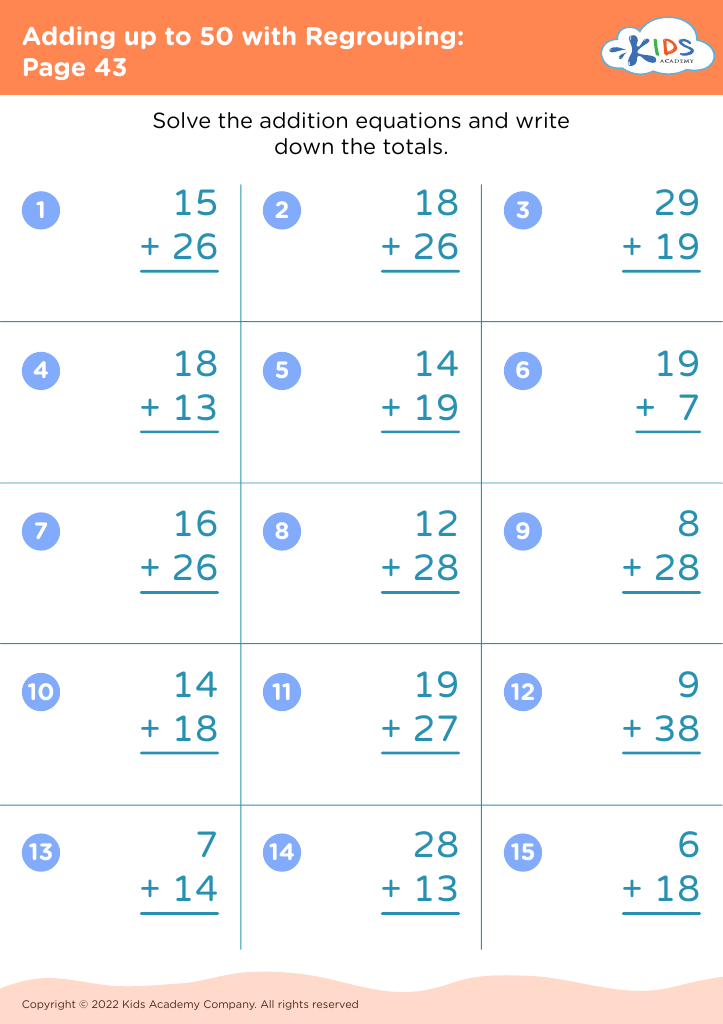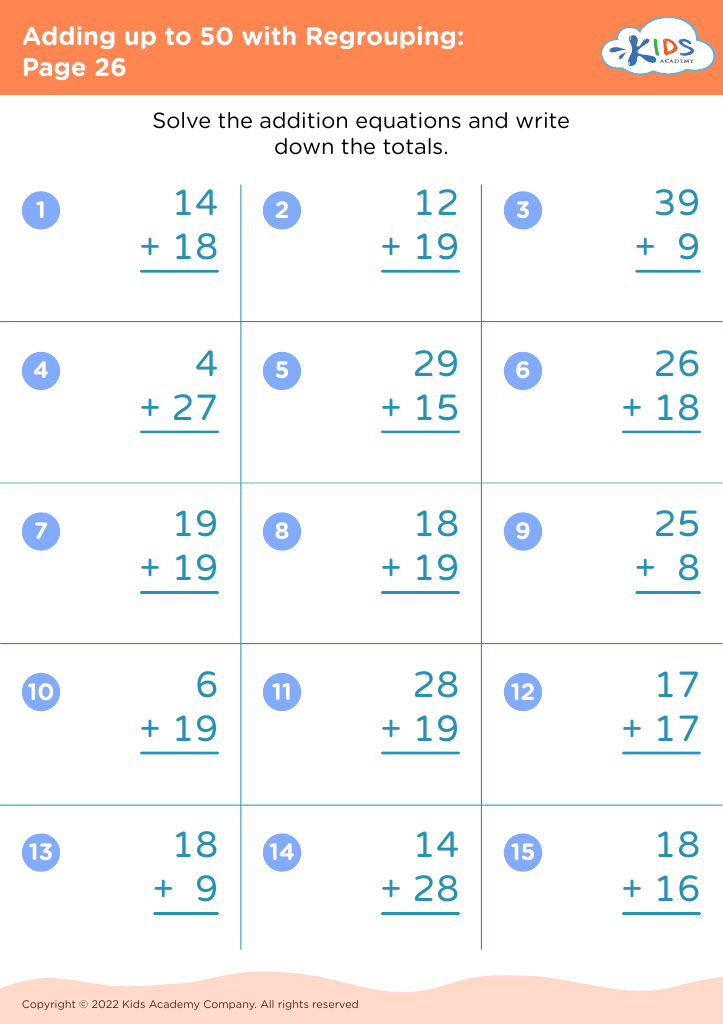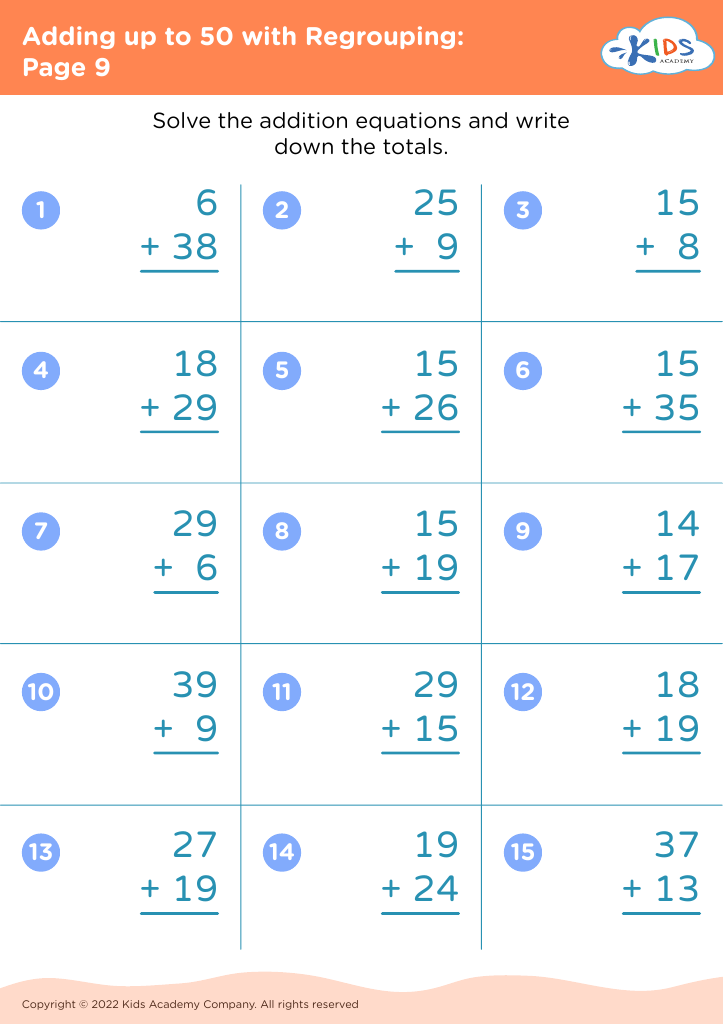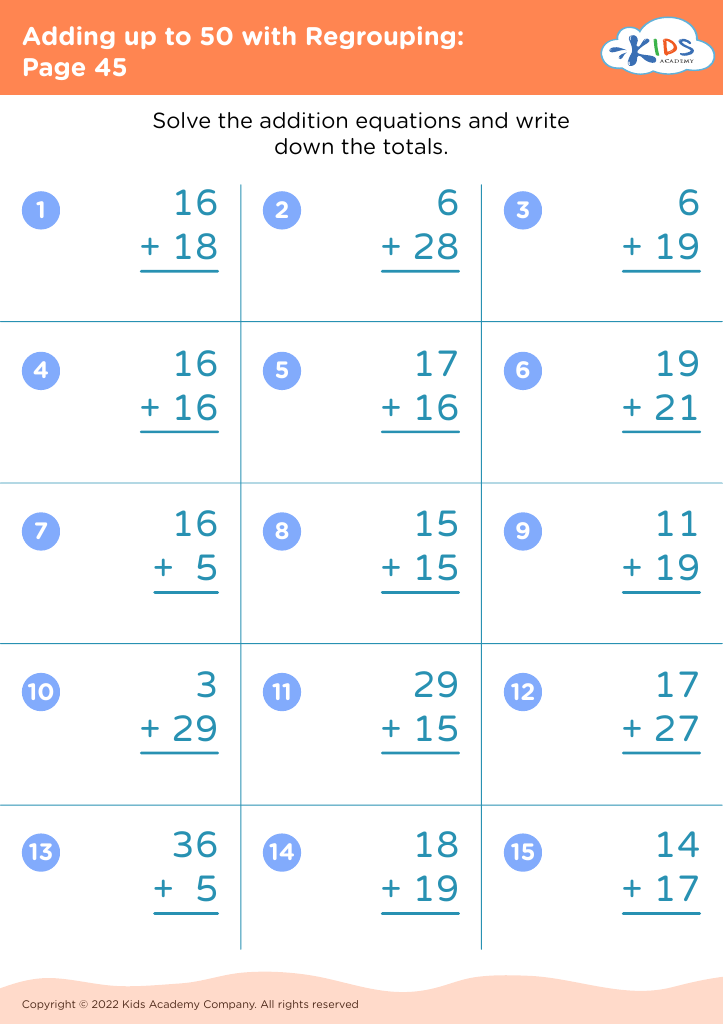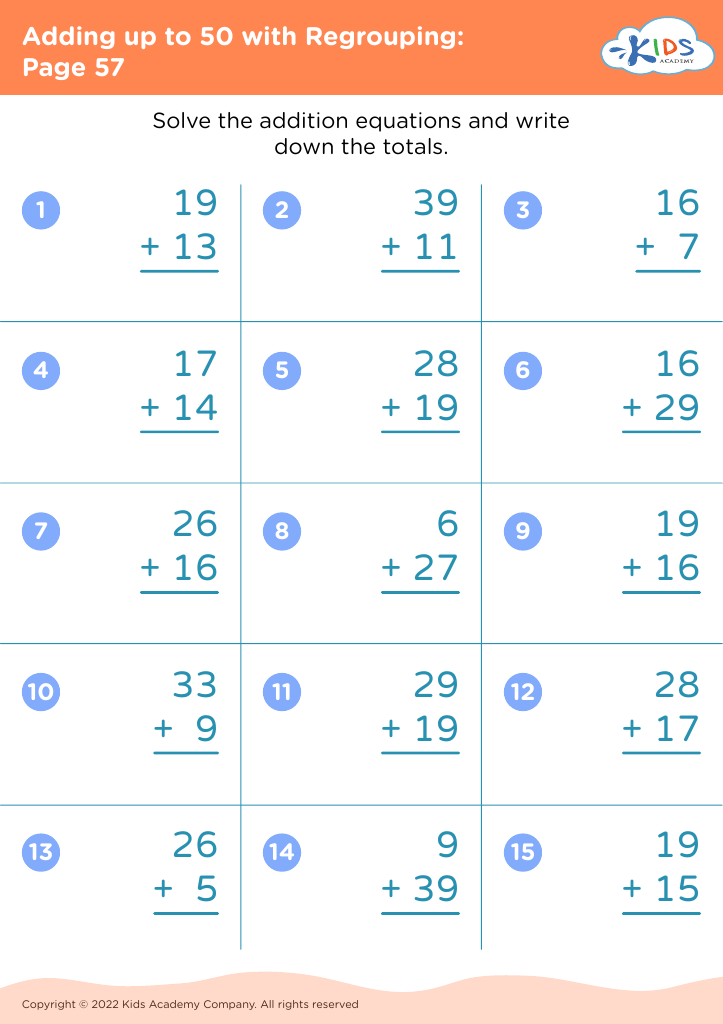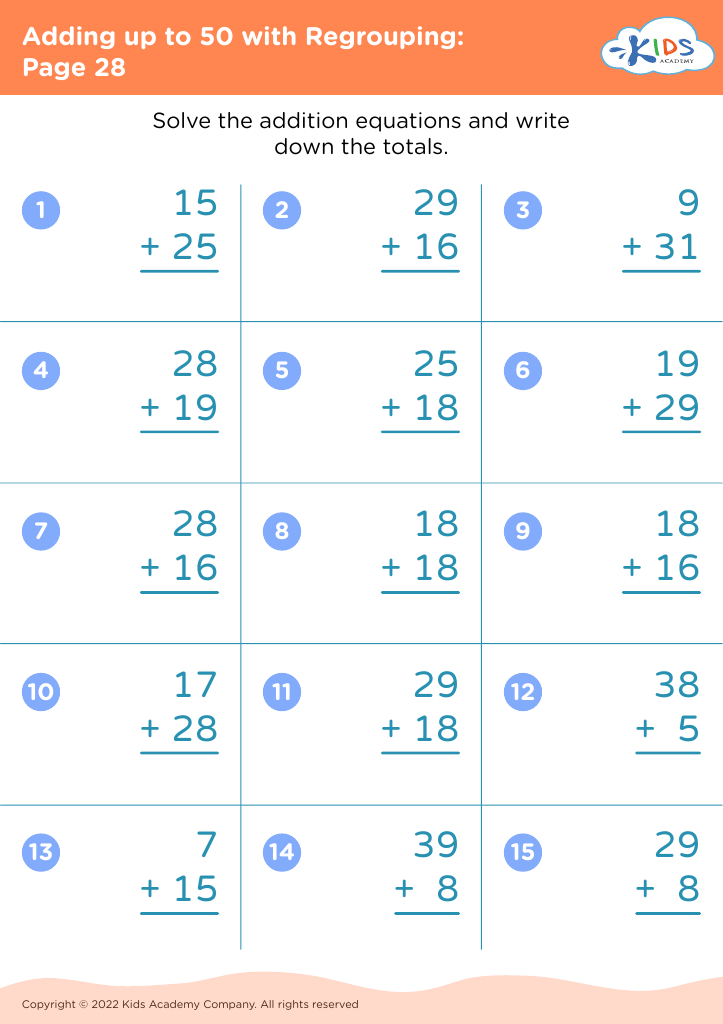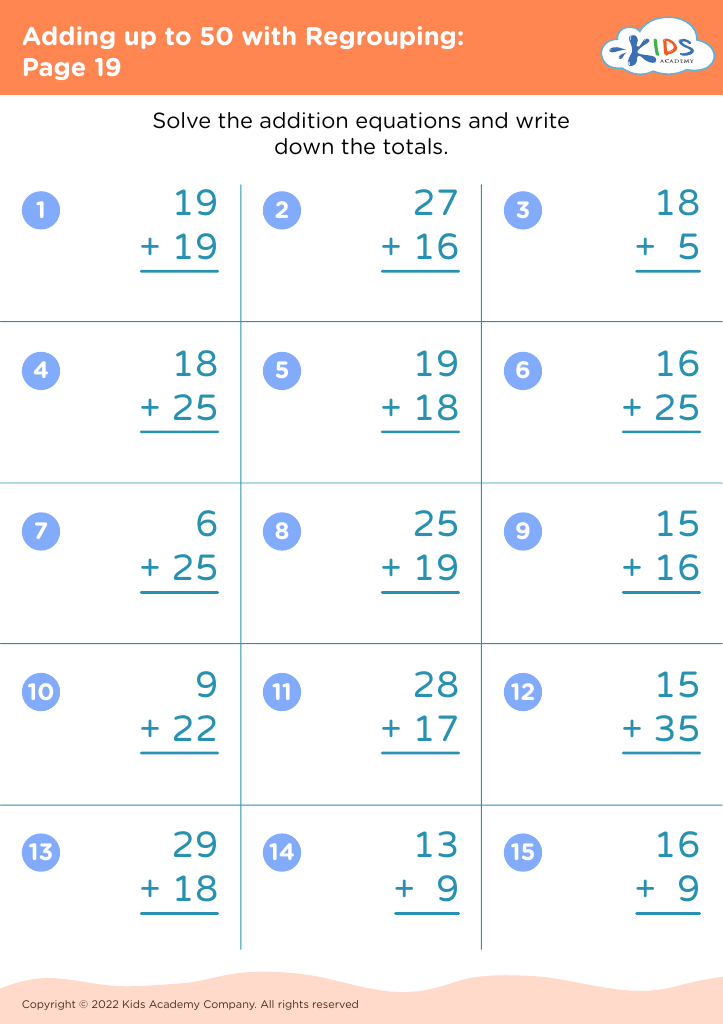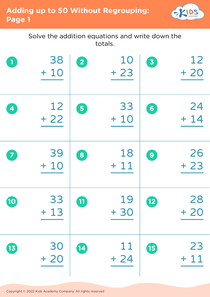Number Recognition Adding up to 50 with Regrouping Worksheets for Ages 5-7
14 filtered results
-
From - To
Welcome to our "Number Recognition Adding Up to 50 with Regrouping Worksheets" designed specifically for children ages 5-7. These engaging worksheets help young learners develop essential math skills by introducing them to number recognition and addition strategies that involve regrouping. With colorful illustrations and age-appropriate activities, students will practice adding numbers up to 50 in a fun and interactive way. Great for reinforcing classroom learning or enhancing home study, our worksheets promote logical thinking and foster confidence in young mathematicians. Start their math journey today and watch them master number recognition and regrouping with ease!
Number recognition and addition with regrouping are foundational skills vital for young learners aged 5 to 7. Parents and teachers should care about these concepts because they form the basis for a child’s mathematical understanding and overall academic success.
Firstly, number recognition helps children identify and understand numbers, which is crucial for all future mathematics. It lays the groundwork for more complex concepts, enabling them to progress in their education without difficulties. Recognizing numbers up to 50 is particularly important in helping them grasp quantities, sequencing, and simple arithmetic in their daily lives.
Additionally, adding up to 50 with regrouping teaches children valuable problem-solving and critical-thinking skills. Regrouping, or carrying over digits when sums exceed single digits, is an important concept that enhances their ability to perform larger calculations in subsequent grades. Understanding how to effectively regroup builds confidence and fosters a deeper understanding of place value and the structure of numbers.
Moreover, mastery of these skills encourages a positive attitude towards mathematics. Children who feel successful and engaged with math at an early age are more likely to pursue mathematics and related fields in the future. Therefore, emphasizing these skills nurtures a strong mathematical foundation essential for lifelong learning.


